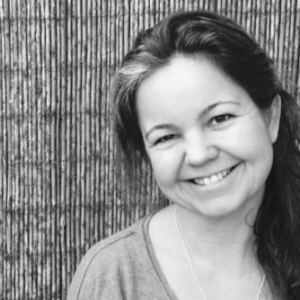1. How and why did you start meditating?
I started in my early twenties in the context of reading about Buddhism and visiting Buddhist centers in London as a visiting student, and then later spending much of my twenties in Asia in various Tibetan communities. I began meditating because of a desire to be able to find greater personal resilience and balance in a turbulent world, to be more capable of meaningful caring in the face of the suffering of others, human and non-human, and to explore the greater potentials we have for deep understanding and vast experience in this complex world.
2. What is the main message you want to transmit with your conference?
Education must be about the individual and collective transformation of awareness, and in order to accomplish this, we must change our basic practices of learning through far more experiential methods that engage ourselves and those around us, integrate the intellectual and the personal for students on all fronts, create environments of deeply reciprocal care, and put the educational mission in the context of human flourishing from small to large scales.
3. Do you think Mindfulness and Compassion can change the world? Why?
I prefer to think about “contemplation and care,” which I believe together with social justice are the only basis we have for hoping for a better world. Contemplation, in its varied forms, provides us the medium through which we can better understand ourselves and the world, and align our values, understanding, and behavior. Care is the medium through which we can stop objectifying other people and forms of life, while also caring enough about others to understand the dense details of other worlds of experiences, including the recognition of the wisdom of difference, not just the wisdom of safeness. And social justice is how we can employ contemplation and care to both envision, and create, a different world in which the lines of equity begin to surpass the boundaries of inequity.
4. 3 books about Mindfulness and Compassion
To be honest, all of my favorite books on contemplation are Buddhist ones written in Tibetan, but unfortunately I find their translations into European languages, if they exist, uninspired. Thus I’ll provide three of my favorite books, which I suppose in the end I do think are about contemplation and care, at least as I interpret them above. Rainer Maria Rilke’s Duino Elegies; James Joyce’s Ulysses; and Shabkar’s The Life of Shabkar, one of the few translations from Tibetan that captures much of the original’s vitality. A poem, a novel, and an autobiography.
5. 3 sites
Larung Gar: This is largest Tibetan Buddhist religious center in the world and is located in the Golok region of Tibet, which is now in the north of the Chinese province of Sichuan. It is a place I studied as a young man and remains the most impressive center of Buddhist learning and practice that I have ever encountered. Intellectually dynamic and adventurous in its learning and publications, committed in its contemplations and compassionate activity, and densely Buddhist in its rhythms and values, it is inspiring on multiple fronts.
The City of Lhasa: The historical center of Lhasa politically and religiously, this city has been the center of intense Buddhist pilgrimage, ritual, meditation, and study for sixteen centuries. Despite recent trauma, it remains an extraordinary place where you encounter the extreme spectrums of human possibility from the cruel to the compassionate, the callous to the contemplative. The heart of it is the Jokhang temple, with its subterranean depths that seem to be a world away, but it is encircled by a vast network of contemplative spaces in small chapels, large assembly halls, and natural pilgrimage sites.
Louisville, Kentucky: A city in the heart of the USA, it has emerged as an exemplar of the compassionate city movement under dynamic political and private leadership. One element of this has been the inspiring Compassionate Schools project, which is exploring how to actualize the deep human potential of young children through an innovative curriculum integrating yoga, mindfulness, social emotional learning, and nutritional education. It also was the base of the famous Catholic contemplative, Thomas Merton, and is a wonderfully vital city.
6. 1 video
Wings of Desire, a German film circling around Rainer Maria Rilke’s Duino Elegies, and its meditations upon angels, children, animals, and the nature of human being, is one of my favorite contemplative films.
7. 1 wish
I wish our species would cease basing its food and clothing industries on the cruel treatment and immense slaughter of other forms of life.


